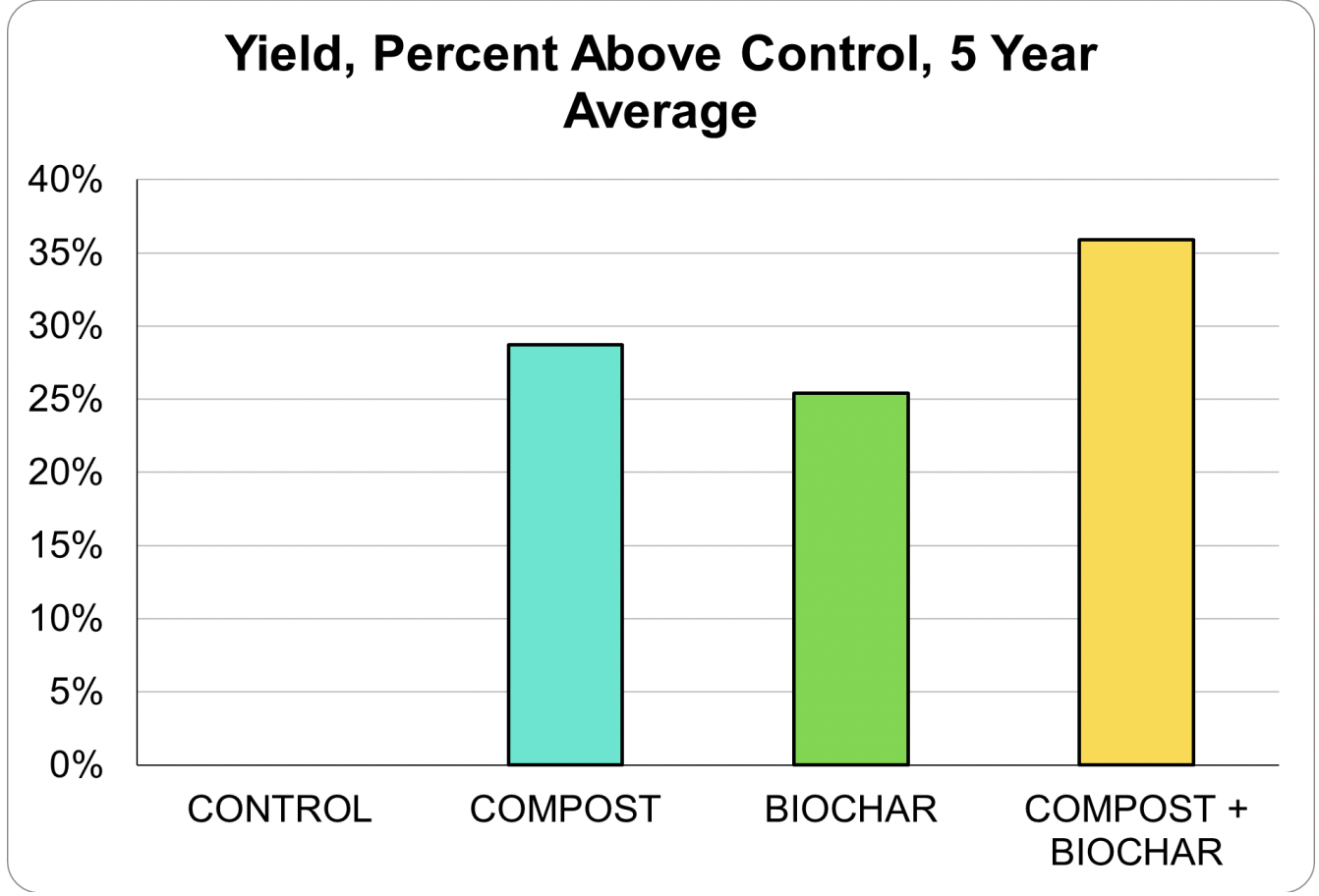Economic and Agricultural Impact of Biochar/Compost Blend in Viticulture
In the heart of California's vineyard landscape, an impactful journey unfolds with the announcement of the Oasis Vineyard study's 5th harvest report, proudly showcasing advancements in both economic and agricultural landscapes with the application of biochar. This milestone marks another significant stride in our mission to champion regeneration through the innovative use of biochar in viticulture.
Harvest Increase
The recently unveiled harvest report, a collaborative effort by Monterey Pacific, Inc., Pacific Biochar, Sonoma Ecology Center, CA Dept Water Resources, and University of California, Riverside, illuminates the positive influence of biochar and compost applications. It showcases an impressive average yield increase exceeding 35%, emphasizing the dual impact of our commitment—both economically and environmentally—in integrating biochar into viticulture practices.
Seasonal Resilience
Even in the face of challenging harvest years, the biochar/compost treatments have consistently delivered remarkable yield improvements. Noteworthy is the exceptional 70% increase witnessed in the third harvest, demonstrating the resilience and unwavering consistency of the compost and biochar combination.
Preserving Grape Quality
Crucially, amid these transformative practices, the quality of the grapes remains untouched, underscoring the sustainability and efficacy of biochar application in preserving the essence and quality of our grape harvest. This is particularly vital as our biochar is crafted by growers, used by growers, and its impact on our product quality is paramount.
Economic Triumph
This ongoing study unveils a positive return on investment by the second harvest, with tangible economic impact realized by the fifth. Application of biochar, compost, and their dynamic combination yields additional revenue per acre, with the biochar+compost blend leading the way, bringing in an impressive $14,937.
Continuous Outcomes
The success of this endeavor owes its gratitude to the collaborative contributions of Monterey Pacific, INC., Pacific Biochar, Sonoma Ecology Center, CA Dept Water Resources, and University of California, Riverside. Their collaborative commitment continues to play a pivotal role in enriching sustainability and productivity in viticulture and fostering the regeneration of our world.


